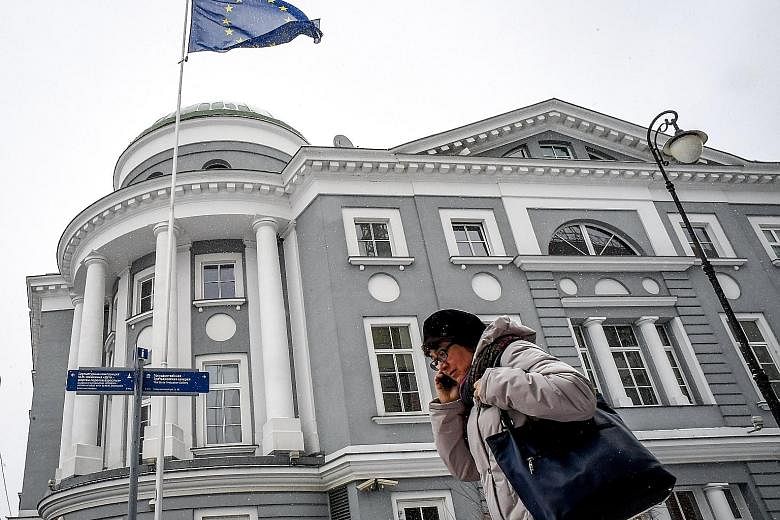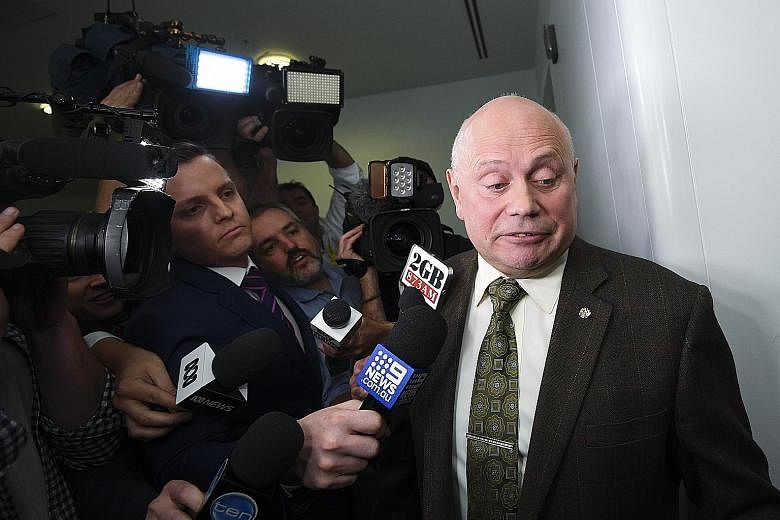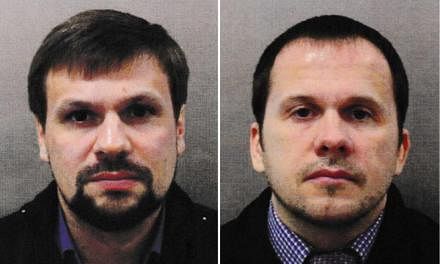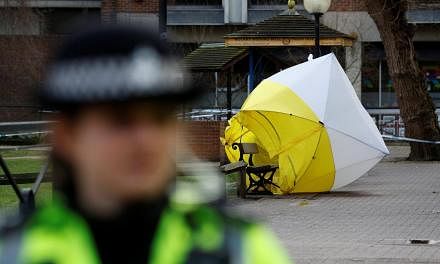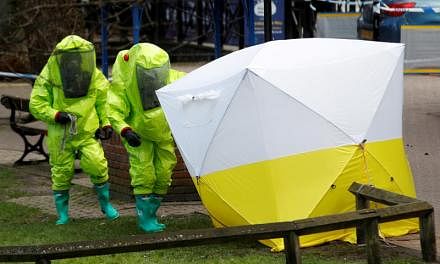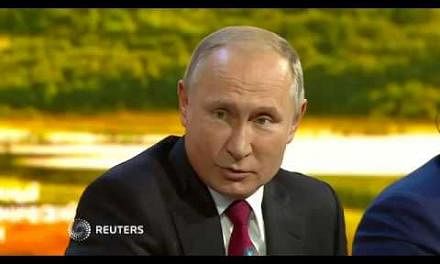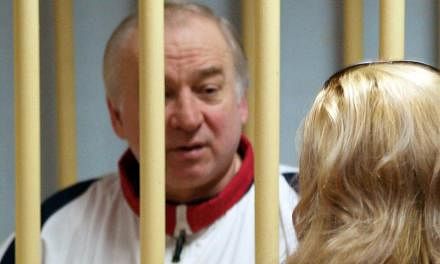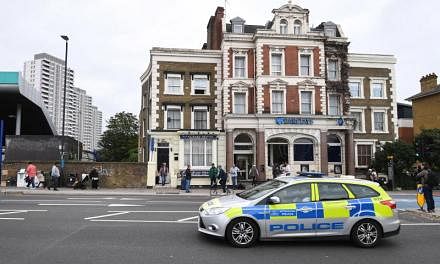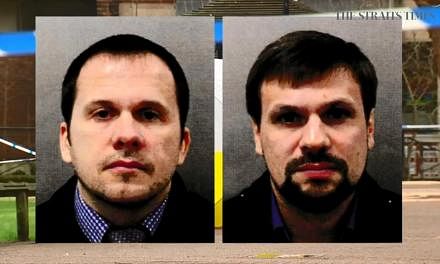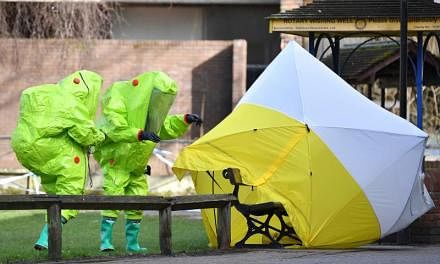TASHKENT, UZBEKISTAN • Moscow charged that Washington had put "colossal pressure" on allies to expel scores of Russian diplomats, and vowed to retaliate.
By yesterday evening, governments of 26 countries around the world had expelled more than 100 Russian diplomats in an unprecedented international response to the first offensive use of a nerve agent in Europe since World War II.
Nato, meanwhile, said late yesterday that it has expelled seven diplomats from Russia's mission to the alliance.
The expulsions were a response to the poisoning of former Russian double agent Sergei Skripal and his daughter Yulia in the English city of Salisbury on March 4 with a military-grade nerve agent.
Moscow denies responsibility for the poisoning, but European Union leaders declared last week that it was "highly likely" there was "no plausible alternative explanation" other than Russia being to blame.
The United States responded particularly strongly, ordering 60 Russians to leave embassies and consulates and shutting down the Russian consulate-general in Seattle.
"This is the result of colossal pressure, colossal blackmail which is the main instrument of Washington on the international arena," Russian Foreign Minister Sergei Lavrov said in Uzbekistan yesterday.
"We'll respond, have no doubt! No one wants to put up with such loutish behaviour and we won't," Mr Lavrov said on the sidelines of a conference on Afghanistan.
Britain, which had urged allies to take strong action in response to the attack, hailed the mass expulsions as a "turning point" for the West's attitude to a "reckless" Russia.
"Never before have so many countries come together to expel Russian diplomats," British Foreign Secretary Boris Johnson wrote in The Times daily, calling it a "blow from which Russian intelligence will need many years to recover".
Australia also joined in the coordinated diplomatic move, expelling two Russian diplomats yesterday that Prime Minister Malcolm Turnbull said were "undeclared intelligence officers".
Russian Ambassador to Australia Grigory Logvinov described the government's decision as "disappointing".
Russian media yesterday said the coordinated expulsions have plunged Moscow's relations with the West into a new "Cold War".
Izvestia pro-Kremlin daily denounced what it called a "flash mob", while Nezavisimaya Gazeta daily stressed that "never before have there been such coordinated expulsions".
"Relationships between Russia and the West are entering a period of an all-out Cold War," political analyst Fedor Lukyanov wrote in Vedomosti business daily. "The expulsions will be particularly destructive for Russian-American relations," he said.
Political analyst Stanislav Belkovsky said Russia's foreign policy has been fired by "the concentrated energy of self-destruction" since 2014, the year when Moscow annexed Ukraine's Crimean peninsula, incurring retaliatory economic sanctions from the West.
"The worse the relationships between Russia and the West are, the better it is for the President (Vladimir Putin)", Mr Belkovsky wrote in a blog for the popular Echo of Moscow radio station.
As international pressure on Moscow mounts, Nato Secretary-General Jens Stoltenberg said late yesterday that the alliance had expelled seven Russian diplomats, denied accreditation to three more, and cut the maximum size of the Russian mission at the alliance to 20 people from 30. "It sends a very clear message to Russia that it has costs,"he told a news conference.
Relations between Nato and Russia were already at a low ebb over Moscow's annexation of Crimea and its role in the Ukraine and Syria conflicts.
AGENCE FRANCE-PRESSE, REUTERS
